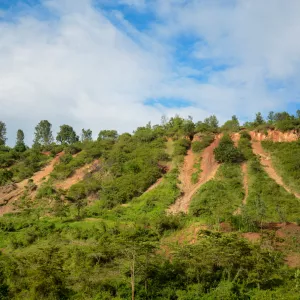Commonwealth Secretariat’s call to action for sustainable land management
The Commonwealth Secretariat’s side event at the 16th Conference of the Parties (COP 16) to the UNCCD highlighted the urgent need to address desertification, drought, and land degradation, particularly in Commonwealth countries. This pressing issue disproportionately affects vulnerable communities, leading to food insecurity, migration, and social unrest. Key challenges and opportunities Drought and land degradation: The event underscored the severe

Commonwealth Secretariat’s call to action for sustainable land management
The Commonwealth Secretariat’s side event at the 16th Conference of the Parties (COP 16) to the UNCCD highlighted the urgent need to address desertification, drought, and land degradation, particularly in Commonwealth countries. This pressing issue disproportionately affects vulnerable communities, leading to food insecurity, migration, and social unrest.
Key challenges and opportunities
- Drought and land degradation: The event underscored the severe impacts of drought and land degradation, with 55 million people facing drought annually and 40% of the global population experiencing water scarcity.
- Gendered impacts: Women, who often bear the brunt of water scarcity as primary agricultural workers and water resource managers, require targeted interventions and a gender-transformative approach.
- Sustainable solutions: Sustainable land management practices, such as conservation agriculture, agroforestry, and improved water use, were emphasized as critical strategies. Innovative technologies, like drought-tolerant crops and decision-support tools, offer promising solutions.
The event called for innovative financing mechanisms, including parametric insurance and smart subsidies, to support drought resilience, especially for smallholder farmers. Improved land governance and the integration of indigenous knowledge were also hig
Strong partnerships between Commonwealth countries, regional innovation hubs, international organizations, and the private sector are crucial to scale up innovative solutions and align efforts with frameworks like the Commonwealth Living Lands Charter.
To address the challenges posed by desertification, drought, and land degradation, the event advocated for:
- Proactive drought management: Shifting from reactive to proactive approaches, emphasizing prevention and preparedness through Nature-Based Solutions (NBS).
- Policy integration: Mainstreaming sustainable practices into national and regional policies to enhance climate resilience.
- Capacity building: Strengthening capacity-building initiatives and participatory planning for communities and policymakers.
- Scaling innovations: Scaling innovations in drought-resistant technologies and integrated water management systems, ensuring gender-responsiveness.
By taking decisive action and fostering collaboration, the Commonwealth can play a vital role in addressing these challenges and securing a sustainable future for its member countries.

